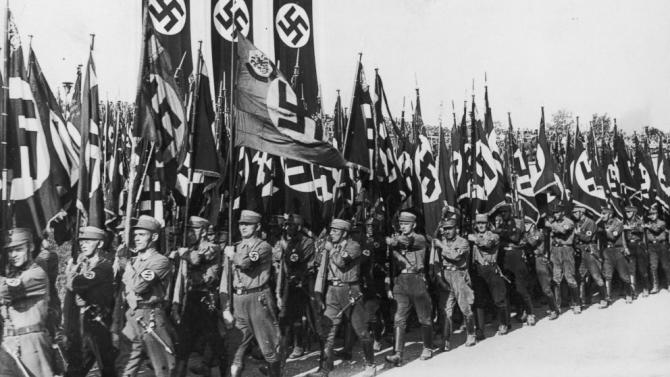
 Archaeologists say they've discovered what they believe to be a Nazi hideout in the middle of an Argentinian jungle.
Archaeologists say they've discovered what they believe to be a Nazi hideout in the middle of an Argentinian jungle.
Six researchers from the
University of Buneos Aires and La Plata Museum found the ruins of what
is believed to be a hideout in Teyu Cuare Park in northern Argentina near the border with Paraguay, team leader Daniel Schavelzon told ABC News today.
He said they discovered the site years ago, but only began extensive research this month.
During World War II,
it's believed the Nazis had a secret project building hideouts in
hard-to-find places like desserts, mountains and jungles such as Teyu
Cuare, Schavelzon said.
The hideouts where meant to serve as shelters for high-ranking Nazi officers in the event of defeat, he added.
During the past 15 days the team
spent at the ruins, they discovered three buildings, a stone quarry and
various artifacts from World War II Germany, Schavelzon said.
 "We found German coins minted between 1938 and 1944, fragments of a
porcelain plate that said it was made in Germany and Nazi symbols and
German inscriptions carved into the walls," he said. "It's hard to prove
the site was definitely made by the Nazis, but we're working to unearth
more evidence to support this hypothesis."
"We found German coins minted between 1938 and 1944, fragments of a
porcelain plate that said it was made in Germany and Nazi symbols and
German inscriptions carved into the walls," he said. "It's hard to prove
the site was definitely made by the Nazis, but we're working to unearth
more evidence to support this hypothesis."The believed hideout was covered in thick vines and moss, Schavelzon added. "It's been very difficult to conduct work there," he said. "Everything is covered in jungle and we have to use knives and machetes to cut through."
Schavelzon said he doesn't
believe Nazis ever inhabited the hideout since it was never needed.
Thousands of Nazis were welcomed in Argentina after the war by former
president Juan Perón, who led the nation from 1946 to 1955 and for a
short while again in the 1970s.

No comments:
Post a Comment